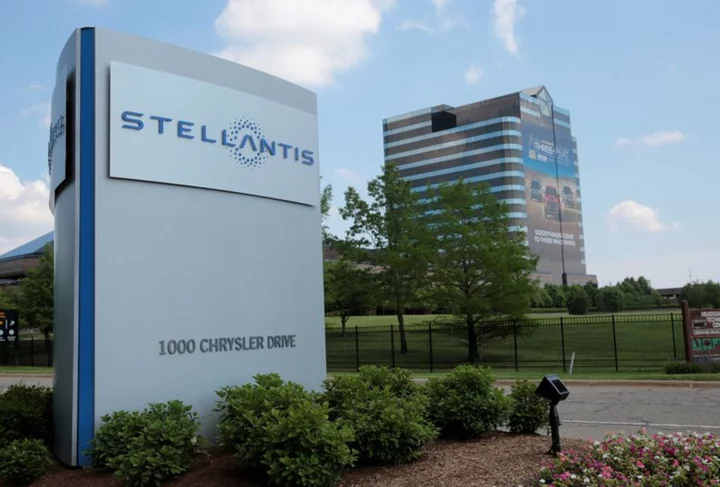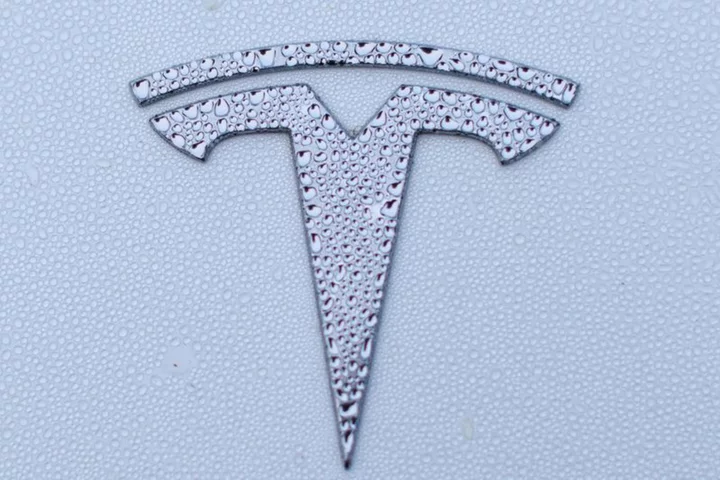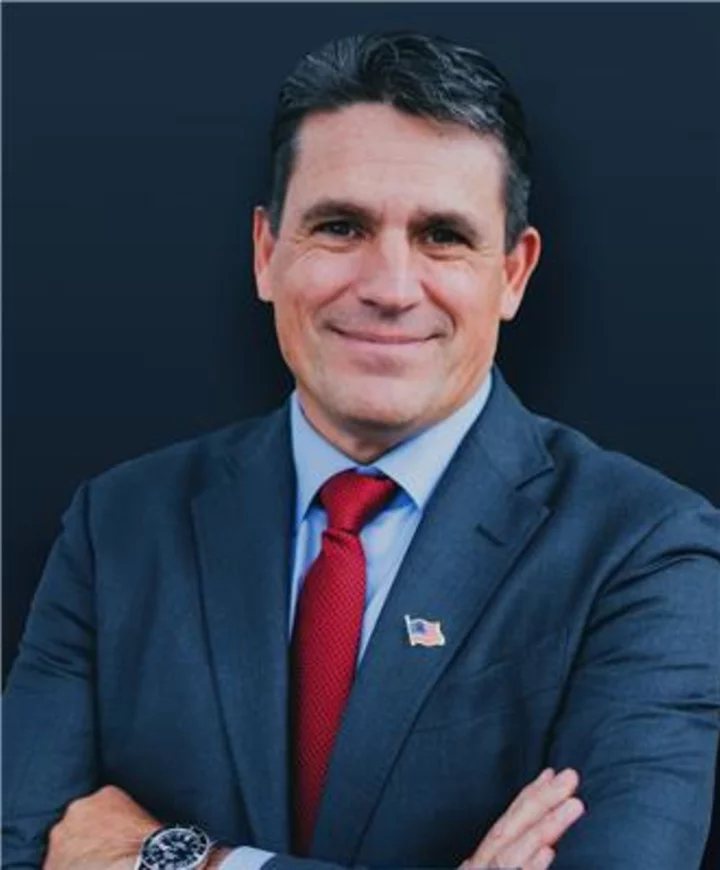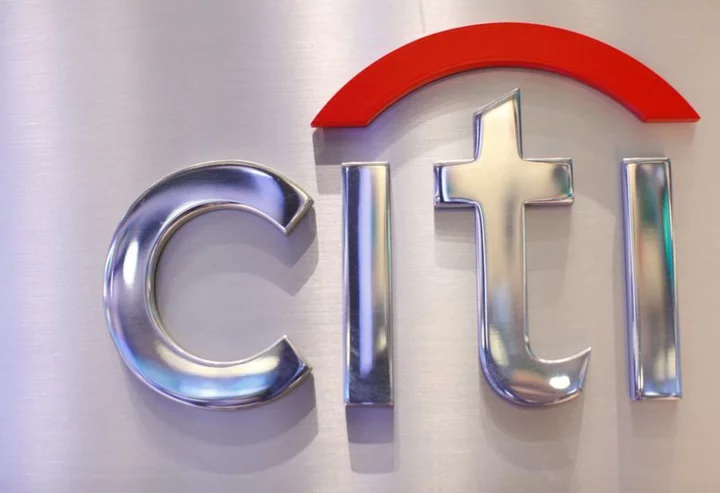By Nathan Gomes
The United Auto Workers (UAW) union will start contract talks with the Detroit Three automakers beginning Thursday, ahead of the mid-September expiration of current four-year labor deals.
UAW's leaders are set to forgo the traditional media event of shaking hands with top executives at General Motors, Ford and Stellantis to open talks. The union leaders plan to meet with auto workers on Wednesday at three Detroit-area plants.
The talks come as Detroit automakers, like their global counterparts, have been focused on cost reductions, which in some cases include job cuts, to help accelerate a shift from gasoline-powered vehicles to electric vehicles (EV).
WHO IS THE UNION NEGOTIATING WITH?
The UAW is negotiating with GM, Ford and Stellantis. The U.S. labor union will officially open talks first with Stellantis, followed by Ford on Friday and GM on Tuesday.
According to GM's annual filing, about 46,000, or 44%, of its U.S. employees were represented by unions, and a majority of them by the UAW.
Ford's annual filing showed about 57,000 of its hourly employees in the United States were represented by the UAW, while the UAW represents about 43,000 U.S. hourly workers at Stellantis.
The UAW has historically picked one of the Detroit Three to negotiate with first as the so-called target that sets the pattern on which subsequent deals are based.
UAW's new president, Shawn Fain, has promised things will be different this time and analysts have said the odds have risen for strikes, including simultaneous walkouts at multiple automakers.
WHAT ARE THE UNION'S DEMANDS?
The UAW is pushing automakers to eliminate the two-tier wage system under which new hires earn as much as 25% less than veterans.
Fain has said repeatedly the union will push to restore pay improvements tied to the cost of living and retiree benefits cut during the 2008-2009 economic crisis.
The UAW also wants strong salary increases given the financial success of the automakers, citing generous executive payouts and large U.S. federal subsidies for EV sales.
Fain also is aiming to get agreements that would allow the UAW to represent hourly workers at joint-venture EV battery plants opened or planned by the Detroit Three.
He also has said the union, which represents about 150,000 U.S. hourly workers at Detroit's Three, is not afraid to go on strike at any of the automakers without a fair contract.
"They've made a quarter of a trillion dollars in North American profits over the last 10 years and they can afford to make things right for our members," Fain said on Tuesday.
The UAW has been wary of the industry shift to EVs and recently called on the Biden administration to soften its proposed vehicle emission cuts that would require 67% of new vehicles to be electric by 2032.
EVs require fewer parts to build and industry officials have said that will result in a need for fewer workers. Fain has said there should be no jobs lost because of the EV shift.
WHAT DO AUTOMAKERS HAVE TO SAY?
The Detroit Three want to close the cost gap they have with foreign automakers with non-unionized U.S. factories.
Ford sources estimate that their U.S. labor costs are $64 an hour, compared with an estimated $55 for foreign automakers and $45 to $50 for EV leader Tesla.
The companies also want greater flexibility in how it uses its U.S. workers to increase efficiency and cut costs as the industry shifts to EVs.
GM said on Monday it has "a long history of negotiating fair contracts with the UAW" and its "total compensation package ... is one of the best in the industry".
Ford CEO Jim Farley in an opinion piece published in the Detroit Free Press last week said "success in this new world will require us to adapt. Some jobs will be disrupted, and some will be created." Late last month, Ford had another round of salaried-worker job cuts.
Stellantis said its "focus will be on negotiating a contract that will ensure our future competitiveness in today's rapidly changing global market and preserve good wages and benefits that recognize the contributions of our represented workforce."
WHAT IS AT STAKE?
A potential strike could hit at a time when automakers are ramping up efforts to maximize gasoline and EV vehicle production to capitalize on demand for new vehicles.
A strike would be another blow, following supply-chain disruptions that hurt production and profits during the pandemic.
In fiscal 2019, GM's fourth-quarter profit took a $3.6 billion hit from a 40-day UAW strike that shut down its profitable U.S. operations.
Fewer cars produced would hit inventories at vehicle dealers that are also trying to cash in on the demand.
Impacts of the potential strike could also trickle down and squeeze quarterly profits for auto part suppliers such as Aptiv, Lear Corp and Magna.
WHAT DO ANALYSTS EXPECT?
"We don't expect companies to raise FY guidance given the uncertainty ahead of UAW negotiations in September. We see a strike as likely," Wells Fargo analyst Colin Langan said.
"We expect the UAW's new leadership will want to prove itself to the rank-and-file membership by trying to squeeze everything it can from the automakers," Fitch Ratings analyst Steve Brown said.
Fain who took helm of the union in March, has been a UAW member for more than two decades.
(Reporting by Nathan Gomes in Bengaluru and Ben Klayman in Detroit; Editing by Shounak Dasgupta)









